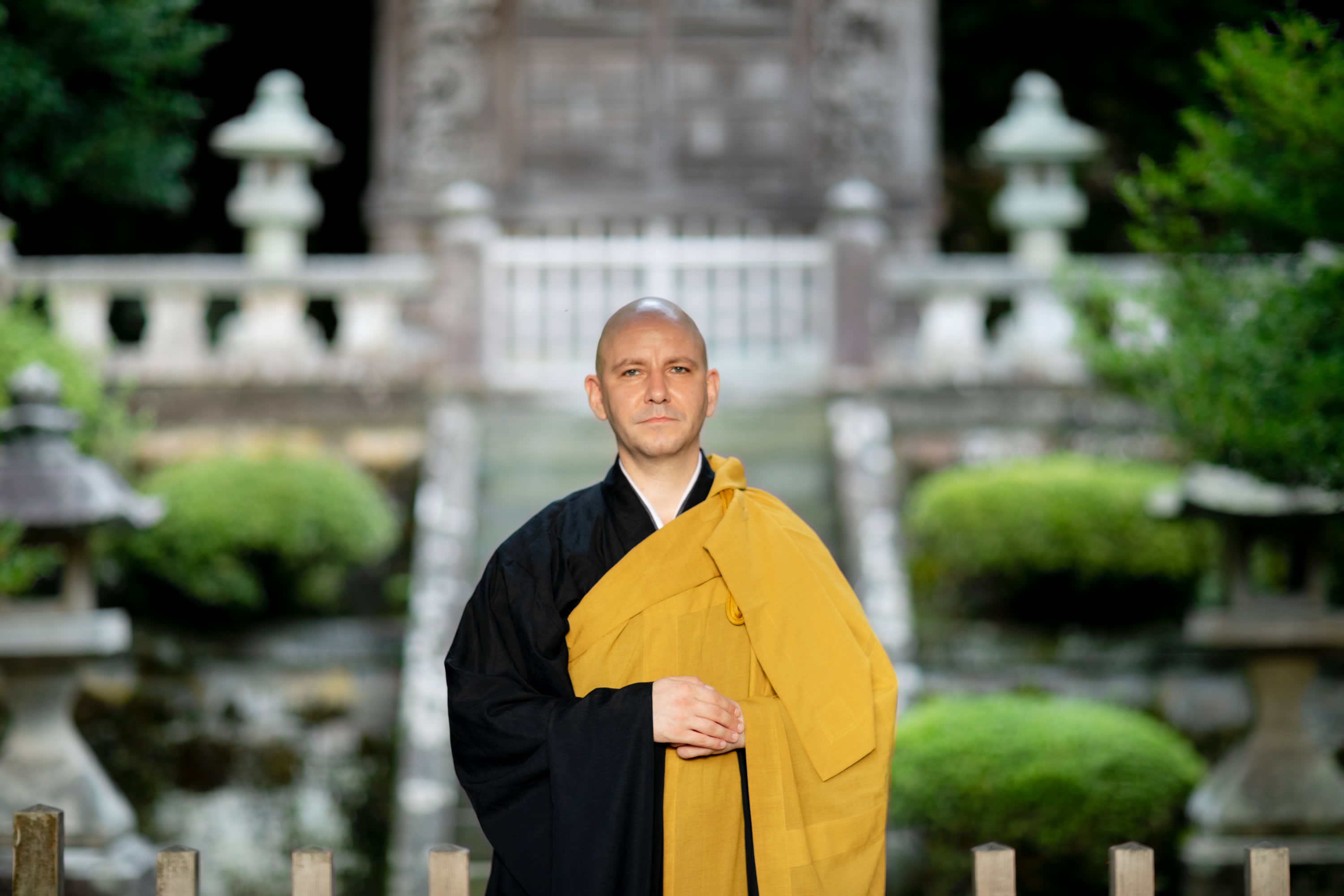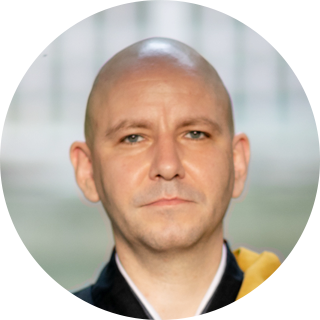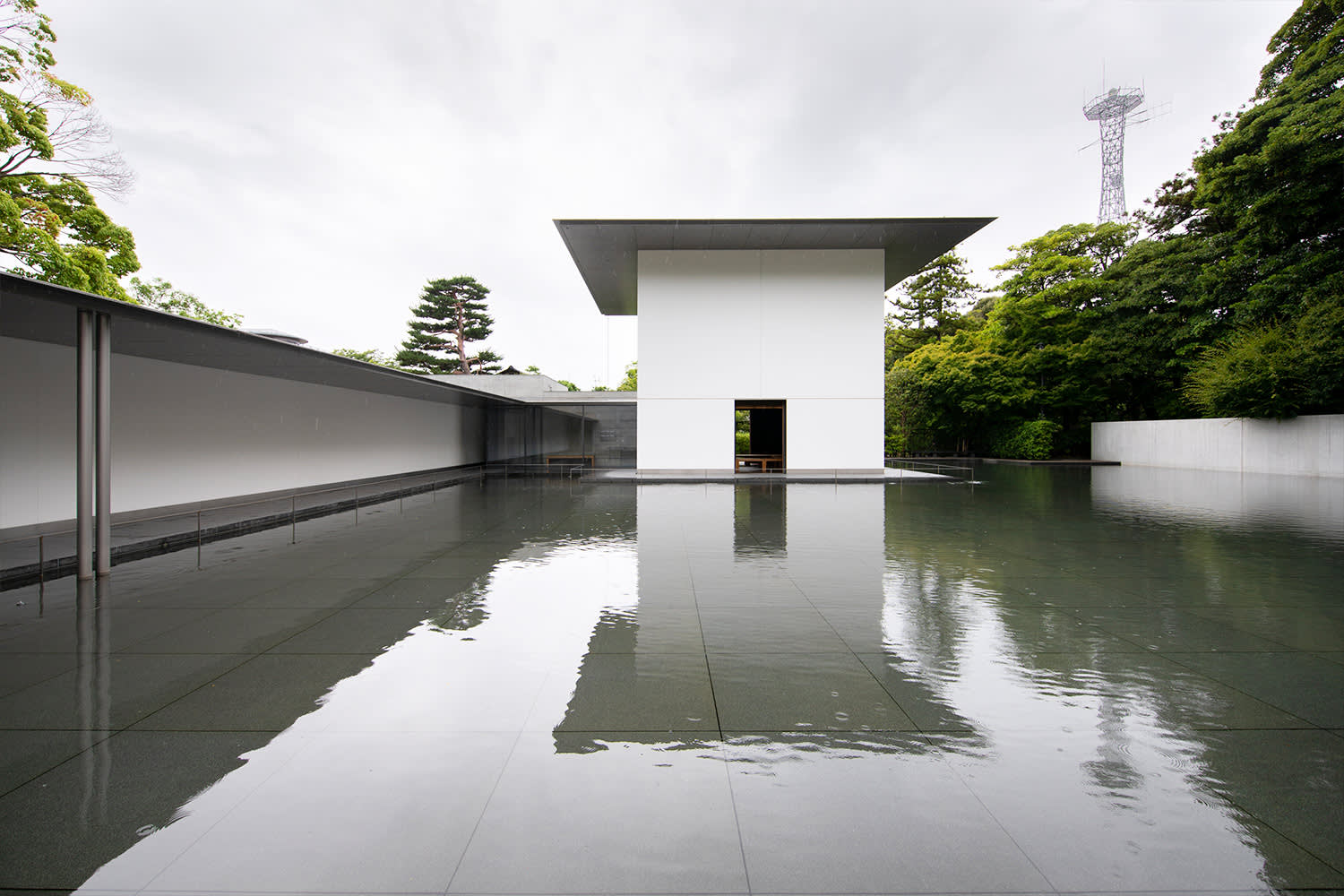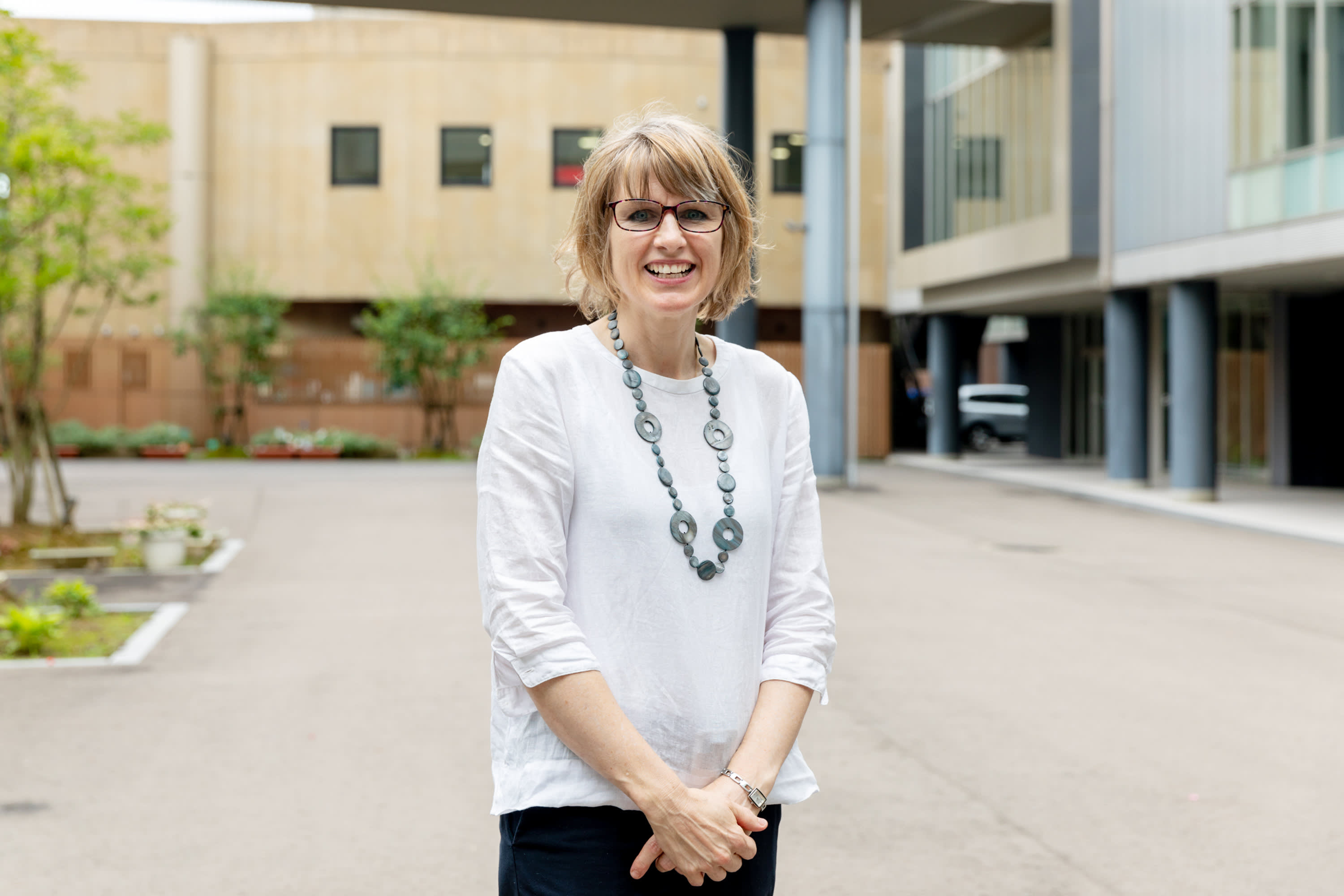
FIND YOUR ISHIKAWA
Noto Peninsula Feature

Shogen
Germany | Zen monk
Shogen is a German-born Zen Buddhist monk. He is a teaching priest at Sojiji Soin Monastery in Wajima and the resident priest at a small temple in Hakui called Kannonji. At Sojiji Soin, he is primarily in charge of reception and receiving guests. He has lived in Ishikawa for nine years.
Why did you come to Ishikawa?

I was born in former East Germany. My father and my mother were forced to renounce their religious beliefs to enter university, so I grew up in a non-religious household. I entered the Department of Japanese Studies at the University of Leipzig. I focused on Japanese philosophy and Zen Buddhism, eventually starting to practice meditation at a Soto Zen dojo near the university. I visited Japan several times to train at temples and participated in their one-week programs.
After completing my graduate degree, I decided to become a Zen monk in Japan. I was ordained in January 2011 and was sent here to Sojiji Soin by my teacher to train. It’s been nine years now.
What makes Ishikawa special?
The people. Once you get to know someone here, you’re like family. For the first year or so, every time I would go outside, people would look at me like, “What is this foreigner doing here?” But after eight years, we greet each other, and it’s very special to me. Then, there is the nature, and of course, the history.
What is your favorite thing about the Noto Peninsula?
I like the Shiroyone Senmaida rice terraces near Wajima. The view of the rice terraces and the sea is the epitome of Japanese landscape in Noto. As a monk, I recommend people go on tours of temples such as Yokoji in Hakui.
If you have the time and means, you should definitely come to the Noto Peninsula. It can be difficult for foreigners to visit because of the lack of transportation options and a language barrier, but I have seen more visitors in recent years.
Are there any other experiences you recommend in Ishikawa?
I like the D.T. Suzuki Museum and the Kitaro Nishida Memorial Museum of Philosophy, not just because of my interest in Japanese philosophy, but also because of the architecture.








